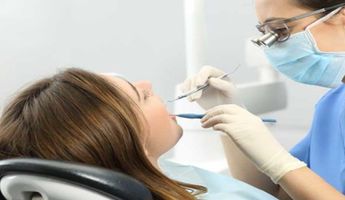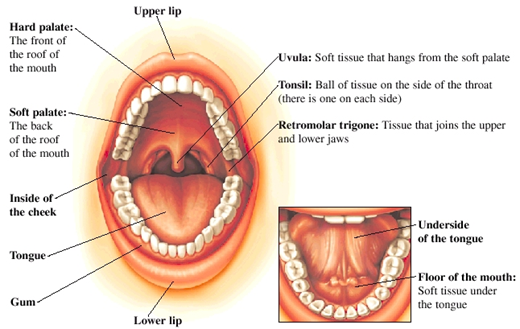Oral Cancer Treatment in Portugal
Search and Compare the Best Clinics and Doctors at the Lowest Prices for Oral Cancer Treatment in Portugal

Find the best clinics for Oral Cancer Treatment in Portugal
No clinics available
India offers the best prices Worldwide
Price: $ 34

- Home
- Portugal
WHY US?
At Medijump, we're making medical easy. You can search, compare, discuss, and book your medical all in one place. We open the door to the best medical providers worldwide, saving you time and energy along the way, and it's all for FREE, no hidden fees, and no price markups guaranteed. So what are you waiting for?

Free

Best Price

Widest Selection

Risk-Free
What you need to know about Oral Cancer Treatment in Portugal

Oral cancer can affect parts of your mouth such as the lips, teeth, gums, and the roof of the mouth. It can be life-threatening if not treated early and the options include surgery, radiation therapy, chemotherapy, immunotherapy, and targeted drug therapy. You may undergo one type of treatment or you may need to have a combination of treatments, depending on what stage your cancer is at and the location, your general health, and personal preferences.
What does a Oral Cancer Treatment Procedure Involve?
If you need to undergo surgery, you will be given a general anesthetic and the cancerous growth will be removed, afterward, you will be treated with radiation therapy which uses high-energy beams that kill cancer cells or you may have chemotherapy which uses chemicals to kill the cells. Your doctor may also suggest targeted drug therapy, which alters specific aspects of cancer cells that fuel their growth. When you have advanced oral cancer, you may need immunotherapy, which uses your immune system to fight the cells.
How Long Should I Stay in Portugal for a Oral Cancer Treatment Procedure?
The type of treatment that you undergo will determine the length of stay in Portugal. If you undergo surgery, you should stay for at least 7 to 14 days. If you have therapy, your length of stay depends on how many cycles are required for your specific case.
What's the Recovery Time for Oral Cancer Treatment Procedures in Portugal?
Recovery from oral cancer will take a significant amount of time and you will need to rest completely for 4 weeks, but you should be able to go back to work within 6 to 8 weeks.
What sort of Aftercare is Required for Oral Cancer Treatment Procedures in Portugal?
After surgery, you may need a tube to help you eat, which may be inserted into your stomach. Rehabilitation is also important if you have advanced cancer, which includes speech therapy. You also need to schedule follow-up appointments with your local doctor so they can monitor your condition and progress.
What's the Success Rate of Oral Cancer Treatment Procedures in Portugal?
The success rate for oral cancer treatment depends on how early the patient gets treated. Those who are treated early can have over 83% survival rates. Surgery carries risks of infection, bleeding, as well as changing the way you speak eat and swallow. Therapy also has side effects, such as mouth ulcers, stiff jaw, loss of appetite, loss of taste, hair loss, diarrhea, and headache.
Are there Alternatives to Oral Cancer Treatment Procedures in Portugal?
The alternatives are watching your nutrition and keeping your mouth healthy, but you still need treatment to treat cancer. If you have mouth issues that could turn into cancer or if the cancer is in its earliest stage, you can undergo photodynamic therapy (PDT).
What Should You Expect Before and After the Procedure
After oral cancer treatment, the risk of your oral cancer spreading to other body parts is reduced and you should no longer feel any symptoms that the disease caused. There is also a good chance that the cancer is cured, so it will not come back.
Whilst the information presented here has been accurately sourced and verified by a medical professional for its accuracy, it is still advised to consult with your doctor before pursuing a medical treatment at one of the listed medical providers
No Time?
Tell us what you're looking for and we'll reachout to the top clinics all at once
Enquire Now

Popular Procedures in Portugal
Prices Start From $2,487

Prices Start From $39

Prices Start From $2,487

Prices Start From $2,487

Recommended Medical Centers in Portugal for procedures similar to Oral Cancer Treatment

- Interpreter services
- Translation service
- Religious facilities
- Medical records transfer
- Medical travel insurance
- Health insurance coordination
- TV in the room
- Safe in the room
- Phone in the room
- Private rooms for patients available

- Interpreter services
- Translation service
- Religious facilities
- Medical records transfer
- Medical travel insurance
- Health insurance coordination
- TV in the room
- Safe in the room
- Phone in the room
- Private rooms for patients available

- Interpreter services
- Translation service
- Religious facilities
- Medical records transfer
- Medical travel insurance
- Health insurance coordination
- TV in the room
- Safe in the room
- Phone in the room
- Private rooms for patients available

- Interpreter services
- Translation service
- Religious facilities
- Medical records transfer
- Medical travel insurance
- Health insurance coordination
- TV in the room
- Safe in the room
- Phone in the room
- Private rooms for patients available

- Interpreter services
- Translation service
- Religious facilities
- Medical records transfer
- Medical travel insurance
- Health insurance coordination
- TV in the room
- Safe in the room
- Phone in the room
- Private rooms for patients available

- Interpreter services
- Translation service
- Religious facilities
- Medical records transfer
- Medical travel insurance
- Health insurance coordination
- TV in the room
- Safe in the room
- Phone in the room
- Private rooms for patients available

- Interpreter services
- Translation service
- Religious facilities
- Medical records transfer
- Medical travel insurance
- Health insurance coordination
- TV in the room
- Safe in the room
- Phone in the room
- Private rooms for patients available

- Interpreter services
- Translation service
- Religious facilities
- Medical records transfer
- Medical travel insurance
- Health insurance coordination
- TV in the room
- Safe in the room
- Phone in the room
- Private rooms for patients available

- Interpreter services
- Translation service
- Religious facilities
- Medical records transfer
- Medical travel insurance
- Health insurance coordination
- TV in the room
- Safe in the room
- Phone in the room
- Private rooms for patients available
Oral Cancer Treatment in and around Portugal
Introduction
Portugal is a country located in southwestern Europe. It’s one of the oldest nation-states of Europe and the world. Its territory had been continuously invaded, settled, and fought over since prehistoric times. Today, the country has become a major tourist destination, with its architecturally stunning cities, cobblestone villages, medieval castles, great food, stunning beaches, and incredible weather. Besides its beauty, Portugal is also attracting people from all around the world for its healthcare. The country offers a combination of state-of-the-art private medical centers, with spotless facilities and private rooms, a wide range of procedures, with very short waiting lists, as well as highly trained patient-oriented medical teams who are fluent in different languages. The physicians in this country have been trained by high standard medical schools, where just top and talented students are allowed to attend.
Popular Cities and Regions in Portugal
Lisbon is the capital and the largest city in Portugal. This city is filled with friendly people, history, mystique, and amazing food. Explore its many beautiful churches, listen to Fado, take a trip to the Castle of St. Jorge, see Sintra, and have some fun in one of its nightclubs. Another popular destination is Batalha, which is home to the UNESCO-listed Batalha Monastery. The monastery was build from 1386 to 1517 and is known as the greatest Gothic masterpieces in Europe. Those who want to party or soak up the sun should visit Lagos, while those who love to wander around and visit museums should visit Porto. Both of these cities are popular and fascinating.
Transport in Portugal
International tourists usually arrive at Lisbon Airport. It is a hub for low-cost airlines EasyJet and Ryanair, and it serves flights to numerous cities around the world. To get around Portugal, trains and buses are very efficient. While trains are often cheaper, buses are usually quicker. Taxis are available in almost every city and are relatively cheap.
Visas in Portugal
Since Portugal is part of the Schengen Area, citizens of 62 countries, including the US, Australia, the UAE, and Canada, are allowed to visit without a visa for up to 90 days. Citizens of most other countries are required to obtain a Schengen visa to visit the country.
Weather in Portugal
From March to May it is spring and the weather is pleasant but there will likely be some heavy rain. Summer, is from June to mid-September, can be scorching hot with temperatures rising to mid 30oC. Autumn, starts from mid-September to December and it brings colder temperatures but and an increased chance of rain. Winter can get quite cold and the days are shorter and always expect rain and storms during this season.
Additional Info
- Local Currency: The euro is the official currency. 1 EUR is equivalent to 1.08 USD.
- Money & Payments: ATMs are widely available, except in small villages. Credit cards are often accepted at midrange and high-end establishments. Tipping is usually expected at hotels and restaurants.
- Local Language: The official language is Portuguese. However, English, French, and Spanish are widely spoken in the country.
- Local Culture and Religion: Christianity is the major religion of the country. Other religions are practiced by a small portion of the population.
- Public Holidays: Portugal Day, Restoration of Independence, and Christmas Day are some of the public holidays celebrated in Portugal.
Popular Searches
- Plastic Surgery in Thailand
- Dental Implants in Thailand
- Hair Transplant in Thailand
- Breast Augmentation Thailand
- Gastric Sleeve in Thailand
- Gender Reassignment Surgery in Thailand
- Laser Hair Removal in Bangkok
- Botox in Bangkok
- Dermatology in Bangkok
- Breast Augmentation in Bangkok
- Coolsculpting in Bangkok
- Veneers in Turkey
- Hair Transplant in Turkey
- Rhinoplasty in Turkey
- Stem Cell Therapy in Mexico
- Rhinoplasty in Mexico
- Liposuction in Mexico
- Coolsculpting in Tijuana
- Rhinoplasty in Korea
- Scar Removal in Korea
- Gastric Sleeve in Turkey
- Bone Marrow Transplant in India
- Invisalign in Malaysia
- Plastic Surgery in the Dominican Republic
- Tummy Tuck in the Dominican Republic
- Plastic and Cosmetic Surgery in Poland
- Rhinoplasty in Poland
- Hair Implant in Poland
- Dental Implants in Poland
- IVF in Turkey